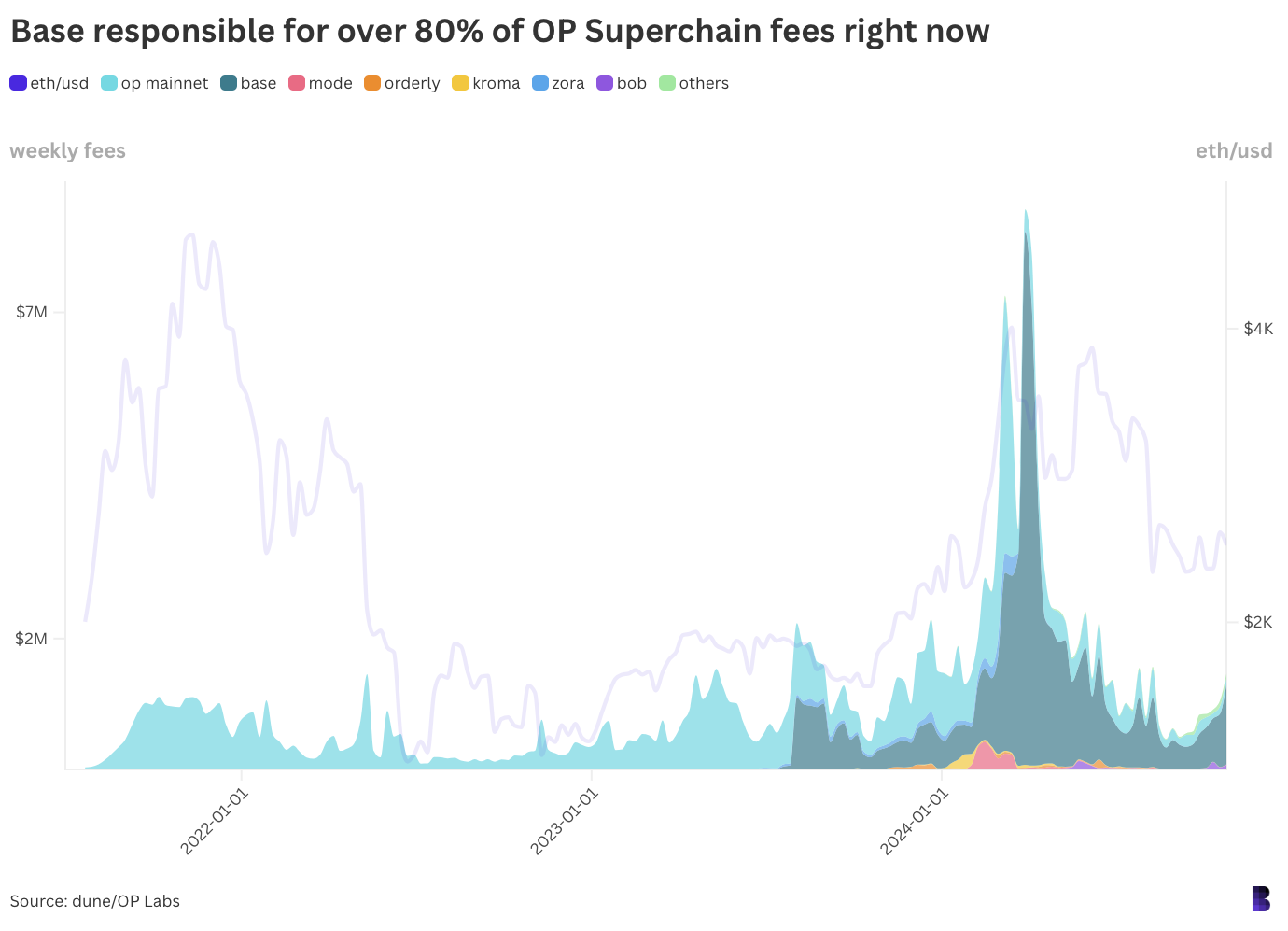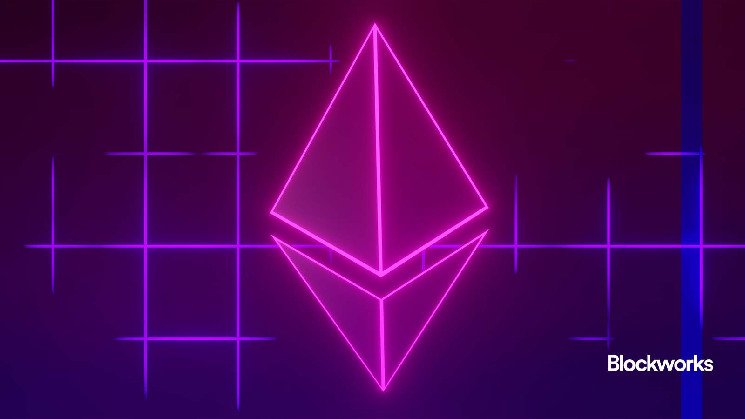This is a segment from the Empire newsletter. To read full editions, subscribe.
If you believe that the Ethereum L2 ecosystem is becoming too crowded, it might be time to think bigger.
Currently, there are over 100 satellite blockchains revolving around the Ethereum mainnet, as reported by L2Beat.
Kraken is set to introduce another one, called Ink, which will operate on Optimism’s Superchain. This will be the 24th network to join the Superchain ecosystem.
Layer-2 solutions often handle transactions off-chain, making them more cost-effective, and then settle them on the Ethereum mainnet periodically.
With lower fees and faster transaction speeds, developers have the freedom to create applications that would be impractical to run directly on Ethereum. For example, swapping tokens on Ethereum currently incurs gas fees of $5.48, compared to just $0.18 on Optimism’s mainnet.
The Superchain aims to enhance the overall Ethereum ecosystem by providing a standardized technical framework for developers to customize their blockchains for general or specific purposes.
Superchain networks, in addition to Optimism’s layer-2 solution, agree to share the fees they generate, ensuring sustainability for the ecosystem.

Weekly fee spend on the Superchain has recently jumped to August levels
If Kraken successfully launches Ink, it will benefit not only itself but also the existing networks on the Superchain.
Users of these networks have collectively spent $180 million in ETH since the launch of Optimism’s mainnet in July 2021.
Despite a significant reduction in L2 fees in March, a substantial portion of Superchain’s fees were generated post-Dencun.
Base, primarily driven by Coinbase’s layer-2 solution, accounts for the majority of fees on the Superchain, with transaction volumes and profitability reaching record levels.
Uniswap, meme coin projects, and trading bots like Banana Gun are currently the main contributors to Base’s gas fees, according to Blockworks Research.
While Kraken’s entry into the space may challenge Base’s dominance, Uniswap Labs is also gearing up to launch its own Superchain network, Unichain, which could further disrupt the ecosystem.
This trend signifies a future where every company, app, game, and community may have their own blockchain. The key is to build the infrastructure, and the users will follow.

